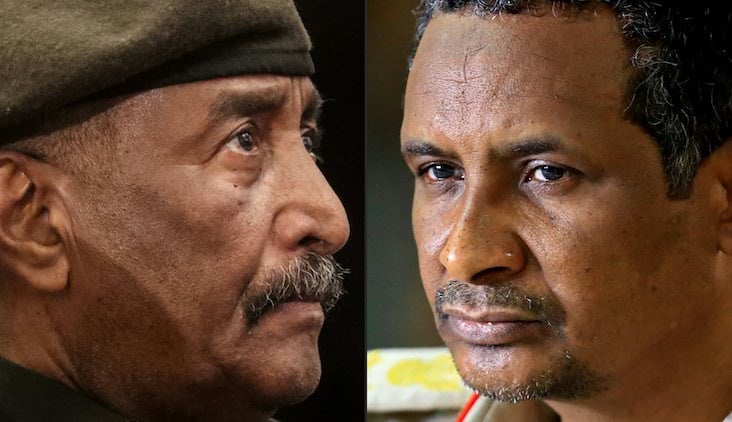Power struggle imperils Sudan's future

What is happening in Sudan breaks our hearts, causing deep concern over the suffering of people trapped in their homes, battling water, electricity, food and medicine shortages.
With the banks closed and communication networks damaged, many do not even have access to cash with which to buy their basic needs or even fuel vehicles in which to flee the crossfire.
Citizens in and around Khartoum have no access to medical care as many hospitals have been shelled. Doctors and nurses cannot reach their workplaces, and ambulances are unable to aid the wounded or collect dead bodies.
Over 400 people were reported killed and nearly 4000 wounded. When the dust settles the numbers are certainly going to be higher, not to mention the cost of damage in a country battling with economic hardship.
The head of the Sudanese army, General Abdel-Fattah Al-Borhan, and the leader of the RSF, Mohamed Hamdan Dagalo, known as Hemedti, had already been involved in lengthy negotiations for months, and actually reached a framework agreement in December that was supposed to pave the road to hand over power to a civilian government.
After missing one deadline after the other for this transition, the latest being on 11 April, many thought the two sides were heading for a confrontation, especially as they started repositioning troops and mobilising more fighters in Khartoum. The leadership of Sudan’s army insisted that the RSF must be integrated within the formal armed forces within two years, while the RSF leader asked for 10 years.
Unfortunately, and after the popular revolution that ousted Sudan’s former president Omar Al-Bashir on 11 April 2019, several regional and international powers sought to interfere in the country’s affairs in order to determine its future.
As one expert on Sudan put it, “each outside party wanted a chunk of Sudan,” a country known for its strategic location, rich in agricultural products, animal livestock and minerals, including gold.
It is also known that the former Sudanese president had close ties with the terrorist Muslim Brotherhood group, and was not very welcoming of the change Egypt witnessed on 3 July 2013, when popular protests led to the removal of late president and Muslim Brotherhood leader, Mohamed Morsi.















Leave a Comment